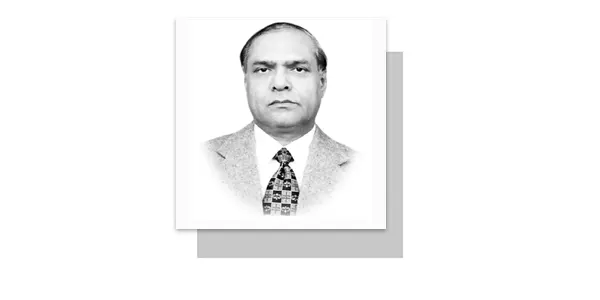A growing global debate has emerged over threats to democracy and personal freedoms, driven by the actions of some governments and leaders who undermine established norms under various pretexts.
The United Nations recognises democracy as a core value and in 2002 its Commission on Human Rights outlined essential democratic elements: respect for human rights, freedom of association and expression, access to power through the rule of law, periodic free and fair elections by universal suffrage and the secret ballot.
Other key principles include a pluralistic political system, separation of powers, an independent judiciary, transparency and accountability in governance as well as a free independent and diverse media.
These fundamental values are increasingly at risk, prompting widespread concern about the future of democratic systems around the world.
The UN has said its framework for democracy is based on “universal principles, norms and standards, emphasising the internationally agreed normative content”.
While the definition of populism can be a contested one, the Oxford English Dictionary describes it as the “policies or principles of any of various political parties which seek to represent the interests of ordinary people”.
The same publication defines kleptocrats as a “thief in a position of political power; a greedy or corrupt politician” and an autocrat as a “ruler who has absolute power of government”.
Concerns regarding the state of democracy and the perceived threat of autocracies and other regimes are not new.
In recent years, concerns have focused on the influence of Russia and a few other authoritarian countries and the impact of the contested presidential election in the United States during 2020 and 2024.
In addition, commentators such as the International Institute for Democracy and Electoral Assistance have argued that the Covid-19 pandemic has deepened the trend for democratic deterioration worldwide.
The UK Government also expressed concerns that some countries may be using the pandemic as an excuse to take disproportionate, illegal or unnecessary actions.
Several organisations seek to measure and track the quality of democracy across the globe including the number of autocracies and factors affecting their waxing or waning.
The continuing trend of deterioration in democracy has led to the period, described by Pew Research Centre as an era of democratic anxiety.
The majority of the reports cover the period from January to December 2020 and thereafter.
Reporting in November 2021, the International Institute for Democracy and Electoral Assistance (IDEA) detailed events in both 2020 and 2021 and argued that many democratic governments were increasingly adopting authoritarian tactics, accentuated by the Covid-19 pandemic, while autocratic regimes were consolidating their power.
The report examined 165 countries around the globe, using five core measures: representative government; fundamental rights; checks on government; and impartial administration and participatory engagement.
It found that the number of countries moving in an authoritarian direction in 2020 outnumbered those going in a democratic direction, a trend that was prolonged and exacerbated by the Covid-19 pandemic.
IDEA pointed to democratic ‘backsliding’ in several countries including Brazil; India; the United States; Hungary; Poland; and Slovenia.
In addition, a deepening authoritarianism in non-democratic regimes and an increasing questioning of electoral integrity in some democracies were highlighted.
The report urged policy actions to renew global democracy through equitable social contracts, political reform, and stronger protections against authoritarianism.
Freedom House’s Freedom in the World 2021 assessed 195 countries and 15 disputed territories using criteria like electoral processes, political pluralism, governance, expression, belief, association, rule of law, and individual autonomy.
It highlighted a deepening “long democratic recession,” with nearly 75% of the world’s population living in countries where democracy declined in 2020.
Significant setbacks were seen in Mali, Turkey, Tanzania, Venezuela, Belarus, Hong Kong, Armenia, and India.
The United States was among 25 countries with the steepest democratic decline over the past decade.
The report also criticised the inconsistent global role of major democracies, stating their retreat has had serious effects on human rights and global security.
Reports and analysis from various sources highlight a troubling global trend of declining democracy and liberty.
Many nations are seeing deterioration in political rights and civil liberties, with improvements becoming increasingly rare.
This decline is not limited to authoritarian regimes—established democracies are also facing internal pressures.
Key concerns include the erosion of democratic institutions, manipulation of elections, restrictions on protests, and weakening rule of law.
Some countries exhibit growing executive power and diminished checks and balances.
The rising influence of authoritarian regimes further threatens democratic norms.
Even within democracies, issues such as economic inequality, political polarization, and misinformation are accelerating democratic erosion.
This global phenomenon affects all regions and carries serious, far-reaching consequences for governance, public trust, and civil freedoms.
Freedom House’s report indicates that global freedom declined for the 19th consecutive year in 2024, with many countries experiencing setbacks in political rights and civil liberties.
International IDEA’s findings reported that 85% of surveyed countries showed a decline in at least one key indicator of democratic performance in the past five years.
The Brookings Institution’s analysis highlights dangerous cracks in the pillars of US democracy, including election manipulation and executive overreach.
This brings us to the question: What are the possible Causes?
To name few: Economic Inequality and widening income gaps and economic disparities can fuel social unrest and undermine trust in democratic institutions.
Political Polarization has created deep divisions within societies which can make it difficult to find common ground and compromise, leading to gridlock and instability.
Authoritarian regimes may seek to undermine democratic institutions in other countries through various means.
Overall, the evidence suggests that democracy and liberty are facing serious challenges globally, requiring concerted efforts from both democratic governments and citizens to safeguard these fundamental values.
—The writer is Former Civil Servant and Consultant (ILO) & International Organisation for Migration and author of seven books. (mughal_rashid@hotmail.com)


















